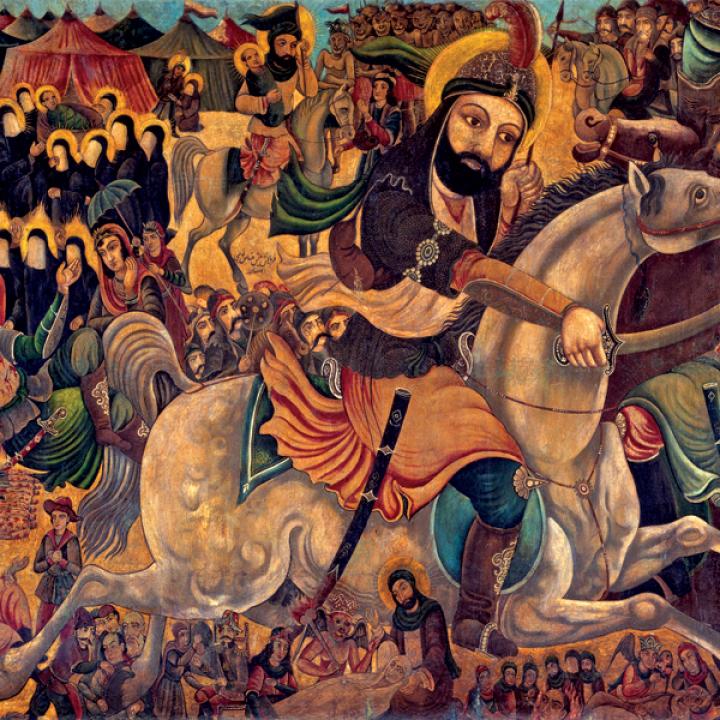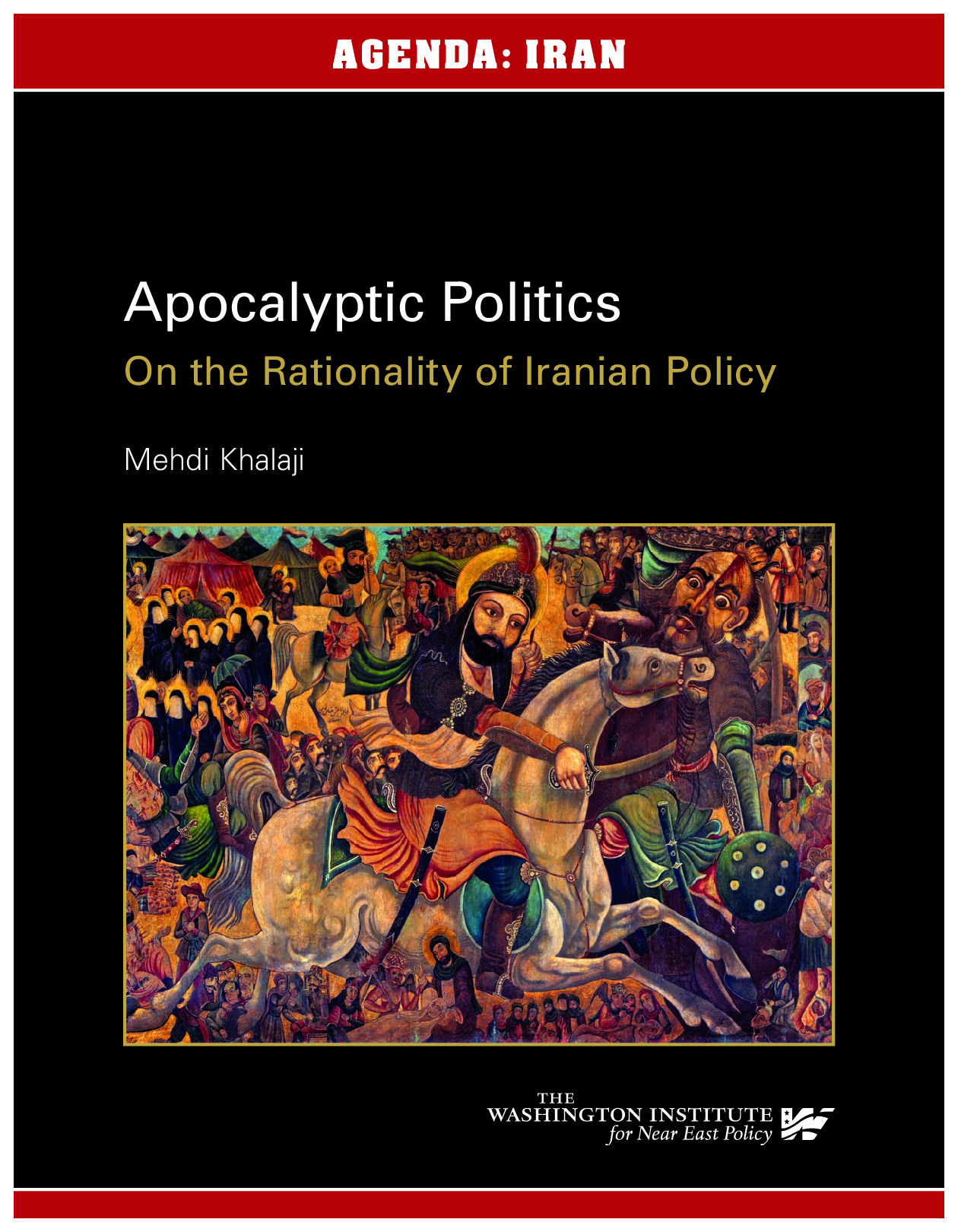
- Policy Analysis
- Policy Focus 79
Apocalyptic Politics: On the Rationality of Iranian Policy

The Iranian regime has given the West ample cause for worry about its intentions and general mindset in recent years. Over and above tensions stemming from terrorism, nuclear activity, and other issues, statements from Iranian leaders since President Ahmadinezhad's election have led many to conclude that the regime may be guided by an apocalyptic vision that would welcome chaos as a way to hasten the reappearance of the "Hidden Imam." Can the president and Supreme Leader be treated as rational actors on issues as fraught with peril as nuclear proliferation?
In this Policy Focus -- the third entry in the Institute's "Agenda: Iran" series -- Qom-trained theologian and Iran expert Mehdi Khalaji examines the complexities of attitudes about the Hidden Imam, both in Shia tradition and among Iran's current leaders. He highlights the spread of superstitious religious practices, as well as the influence of anti-rationalist trends rooted in Mahshad, Iran's holiest city. He also explores whether religious factors have a strong influence on the regime's decisionmaking. Iran's leaders have displayed an often bewildering vacillation between "end of days" thinking and self-preservation -- understanding these seemingly contradictory tendencies is crucial to formulating more effective policies aimed at curbing Iran's ambitions in the nuclear arena and elsewhere.
-
50 pages


